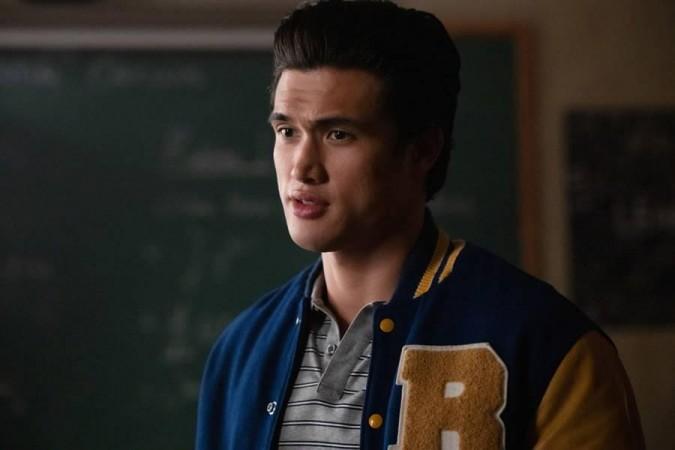In the popular Netflix series, Never Have I Ever, protagonist Devi Vishwakumari attends Ganesh Puja held at her school. She is unable to connect herself as an Indian with the crowd there, and neither is she able to be an American as she wishes to be. She meets a cousin at the Puja who tells her that he would rather be a proud Indian, than the Indian American who is too insecure about his race and ancestry.
Meanwhile, Devi, who already declared herself as a burger eating athiest, who would never ever come back to a festival such as the Ganesh Puja, declared herself as 'totally Indian' in the most unconvincing way possible. In the same series again, a Japanese boy named Paxton Hall Yoshida has to verbally declare himself as a Japanese teenager since his friends had not noticed the Yoshida in his name.
In a comical manner, the series had explored the cultural identity Asian children struggle with while living with American citizenship. Riverdale star, Charles Melton who is popular for his role as Reggie in the series, recently opened up on the Anti-Asian crime he faced while living in America.

I've often been told that I'm not Asian enough. Not white enough. And I question whether I am enough at all. I am conflicted by my racial identities and the trauma that comes with that. In light of the recent horrors, I am compelled to share my story...
Charles wrote in his letter. He gave a brief introduction about how their parents met in Korea and how his father, who works for the Army had fought in Iraq and Afghanistan. Charles father had dedicated his life to the freedom of America. His childhood was mainly spent in army camps of South Korea, Texas and Germany. He, however, always thought of himself as a proud American citizen since he had a father who risked his life to protect the country.
Over these past few months, I've reexamined my roots. With that, I've been thinking a lot about my mother. My earliest memories are with her, out in the world among friends and strangers. But there was always pain in these interactions. I remember people talking down to my mother as if she didn't belong. It demeaned her and in turn triggered something in me that I've long buried deep inside. A truth that at my young age, I didn't know how to protect her, and it broke my heart.
Comments from friends about my house smelling funny because of my mother's home-cooked Korean meals and kimchi caused me to carry shame. At school, I never learned about my Korean American history – or Asian American history at all. If you never learn about your own history, how can you really exist? Trying to fit in at school, I chased the American dream by being a star athlete, all the while suppressing my Asian identity. I remember even beating everyone to the punch by making Asian jokes before anyone else would.All the while, my mother held our collective pain – the feelings of displacement and shame – and carried the burden on her shoulders, blaming herself.
That was not all. The hate crime against his community had continued. When he had a deep introspection about his own experience he realised that he had never fought enough to stand up for his own Korean heritage.
I've willfully ignored the racism and microaggressions directed towards me and my people. I failed to defend my heritage in fear of retribution. And now I can't help but wonder what I did to contribute to the violence against Asian Americans.
At present with all the hate crime that has swept the country, he feels the responsibility as a star to talk about it.
Domestic terrorism and hate-driven violence have plagued our nation and continue to do so. What's clear in all of this is the rampant violence against Asian people. While I'm still trying to figure out how to merge my past and my present, I know the first step is to acknowledge that the problem exists. I intend to do the work in learning my own place. To be honest, I don't know where my voice lives in all of this, but my new intention is to challenge this very broken system. I do know that I want to use media and entertainment as advocacy. I want to tell inclusive, representative stories. I want to reconcile my identity and come to terms with who I am, despite the pain. I want to uplift the AAPI experience through storytelling, caring, understanding, and kindness that I can share with the world.
He signed off the letter as a proud Korean American.


![Nayanthara and Dhanush ignore each other as they attend wedding amid feud over Nayanthara's Netflix documentary row [Watch] Nayanthara and Dhanush ignore each other as they attend wedding amid feud over Nayanthara's Netflix documentary row [Watch]](https://data1.ibtimes.co.in/en/full/806599/nayanthara-dhanush-ignore-each-other-they-attend-wedding-amid-feud-over-nayantharas-netflix.jpg?w=220&h=135&l=50&t=40)











![Nayanthara and Dhanush ignore each other as they attend wedding amid feud over Nayanthara's Netflix documentary row [Watch]](https://data1.ibtimes.co.in/en/full/806599/nayanthara-dhanush-ignore-each-other-they-attend-wedding-amid-feud-over-nayantharas-netflix.jpg?w=220&h=135)


